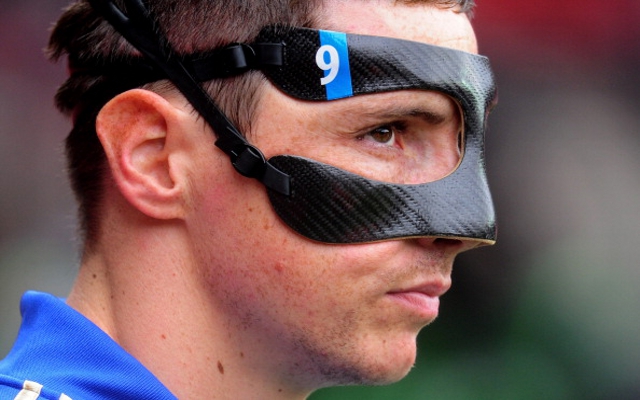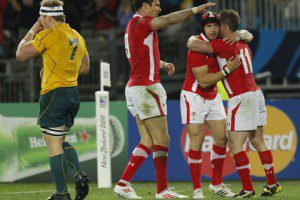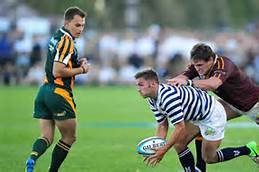
The Inside Man is our latest regular contributor who also coaches and has moved to South Africa to do a Sports Diploma at a prestigious Rugby University. Due to the sensitive nature of his material, all names and locations have been altered. The Inside Man will be commenting on coaching styles, difference in playing styles and specific issues within the team and season, while dissecting the incredibly professional and intense structure of South African Rugby

Inside Man Part 4: Acceptance and Heartbreak
KRUGER NATIONAL PARK, S.A. – They were hot in practice leading up the game… They were switched on during the warm up… They were instinctive, brutal and clinical in the first half… Then they just stopped.
It is a hard thing to watch a rugby team stop playing BECAUSE they are playing so well. I think it is something that for many coaches, only happens to other teams. Indeed, you fervently believe this until it happens to your team. The team were almost perfect for 35 minutes, the defence was savage and the lineout was perfect (on the opposition throw as well for a lot of the time). Two late tries to the opposition were virtual non-events simply due to shocking refereeing errors. The half-time message was simple, more of the same please.
And they just stopped playing. Opposition carries that before had made 2 metres or indeed no metres, made 10 metres, balls were dropped in contact – simple stuff – but utterly toxic to any and all rugby teams. The truth is a horrible thing and the truth in this instance was they were up by a big margin at the 20 minute mark and still up at half time.
The speed of the first half beating they inflicted was so fast that serious whiplash occurred. And they lost, by the smallest of margins. Directly after the game I genuinely did not know why. Players came up to me and asked what went wrong and I could not answer them. I did not believe that this team, with all its professionalism and ability, had just shut down against a team that they had beaten from pillar to post for 35 minutes. But such is rugby, one minute you are flying high thinking about all the trophies and another you are plummeting like a rock after one lapse in concentration.

I asked the coach the next day, how do you respond to a loss like that? A loss that is not down to lack of ability or poor coaching; a loss that is in fact down to something that cannot be coached, but something that the players must find within their own psyches. He said, “You can either swing to the extreme left or to the extreme right.” In other words, you can go after your players, beat them, shout at them and generally piss them off with a steady stream of vitriol… Or you can say, “You have learned your lesson; we know we can beat teams like that and now you have felt the disappointment and embarrassment of losing to them, don’t do it again.” He chose option 2. There was a fun and new type of fitness session, tiring but ultimately refreshing for the players.
The video session was a reaffirmation of the importance of the players above all else, much like the fallout from the first pre-season game, the players took the lead. They knew exactly where they had gone wrong and there seemed to be a quiet understanding that not only would they not do it again… they COULD NOT do it again.
I went through a kaleidoscope of emotions. Before the game I had double-checked that it was all right for me to be helping in the warm up and standing on the sideline with the coaching staff and reserves. The forwards coach, himself a former representative player, said to me that it was absolutely fine because the players respected me. It is a weird sensation to be told something like this, especially from my position as, effectively, an intern. You feel like a huge weight has been lifted off your shoulders. Acceptance is something that is difficult to understand in a rugby team, people can be involved with one, but never truly accepted. They can have daily interaction with the players but not be a part of that particular group. For the last few weeks I at times felt like a third wheel. This simple statement was something that held massive significance.
 Another such moment came after the game before the after match function. I was standing around in my slightly battered trainers, shorts and t shirt, waiting for the bus to go home (there is an evening bus that drops players/staff back at their houses). I had been in the changing rooms, consoling and helping where possible and after the majority had left I went to wait in the foyer for the function to be over so the bus could leave. One of the second rowers wandered over and said come on let’s go in. I replied that not only was I not dressed for it (all players were in shirts, blazers and ties) but I was also neither a player nor a coach. He replied that he did not care, I was a part of the team and as such I was going to be with them for the after-match dinner. End of it.
Another such moment came after the game before the after match function. I was standing around in my slightly battered trainers, shorts and t shirt, waiting for the bus to go home (there is an evening bus that drops players/staff back at their houses). I had been in the changing rooms, consoling and helping where possible and after the majority had left I went to wait in the foyer for the function to be over so the bus could leave. One of the second rowers wandered over and said come on let’s go in. I replied that not only was I not dressed for it (all players were in shirts, blazers and ties) but I was also neither a player nor a coach. He replied that he did not care, I was a part of the team and as such I was going to be with them for the after-match dinner. End of it.
It’s the small details that can often mean the most. And to be stubbornly cajoled into that dinner, by a man who not an hour before had had victory snatched from him, and frankly could be forgiven for being considerably more pissed off than he was, was something deeply moving for me. I do not bleed with these players on the field of play, I do not go through the soul destroying fitness with them, and yet still they have accepted me as part of this group, it is a memorable thing to feel that I am even remotely a part of this network of players and staff, and a feeling that once achieved cannot be taken away. Catch you all next week.
That’s it for now… feel free to comment below, look for and “Like” our Facebook Rugby Wrap Up Page and follow us on Twitter @: RugbyWrapUp, Junoir Blaber, DJ Eberle, Nick Hall, James Harrington, Cody Kuxmann, Jaime Loyd and

